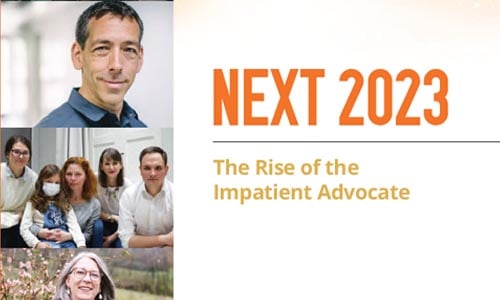 Amanda Malakoff, executive director of the Rare Disease Company Coalition, an industry advocacy group, addresses what FDA approvals look like for 2023, which type of drugs may get approvals quicker, and provides some background information on why 2023 is different than years past.
Amanda Malakoff, executive director of the Rare Disease Company Coalition, an industry advocacy group, addresses what FDA approvals look like for 2023, which type of drugs may get approvals quicker, and provides some background information on why 2023 is different than years past.
Read an excerpt from the 2023 NEXT Report to learn more about drug approvals in 2023, and continue reading by clicking the link at the bottom:
“The effects of the COVID-19 pandemic, the war in Ukraine, and the subsequent economic downturn have caused drug developers to trim their pipelines and focus on programs with near term and best chances for success. Perhaps the best indicator of the long-term impact these developments will have on bringing new therapies to rare disease patients, albeit a lagging one, will be the number of novel therapies
approved by the U.S. Food and Drug Administration. It may be years, if ever, that such manifestations may be seen. It’s unclear whether any of these factors weighed on drug approvals in 2022, but it was a down year for FDA approvals of novel therapies.
The FDA’s Center for Drug Evaluation and Research approved 20 novel therapies for rare disease in 2022, 54 percent of the 37 novel drugs the division approved in 2022. That represented a 23 percent decline in the number of novel orphan drugs approved compared to the 26 the
agency approved the previous year. It was the second year of decline in novel rare disease drug approvals. A total of nine of the novel orphan drug approvals, 45 percent, were for medicines to treat rare cancers.
Of the 20 novel rare disease drug approvals in 2022, 12 were first-in-class therapies, nine had Breakthrough Therapy designation, and 14 benefited from Priority Review. Six of the therapies won approval through the accelerated approval pathway.”
NEXT report provides an overview of developments across the rare disease landscape and highlights trends in research, diagnosis, development, and treatment, as well as the changing regulatory and financial environment. Read about:
- How new genome sequencing technologies are cutting the cost and accelerating the speed of making a diagnosis
- How patients are taking a hands-on approach to research to change the fundamental understanding of some rare diseases
- What advances were made on the policy front in rare disease and the unfinished work that will be addressed in the coming year

Stay Connected
Sign up for updates straight to your inbox.
